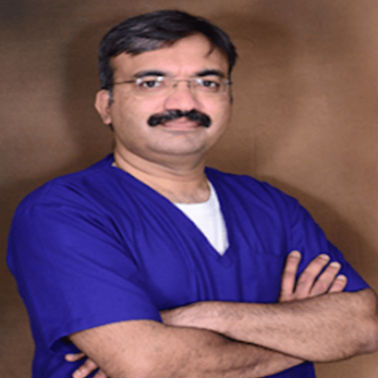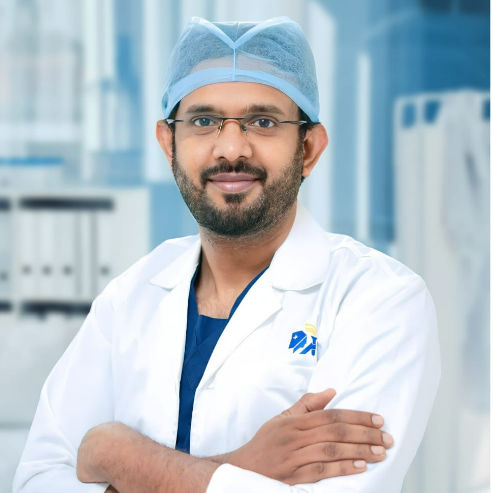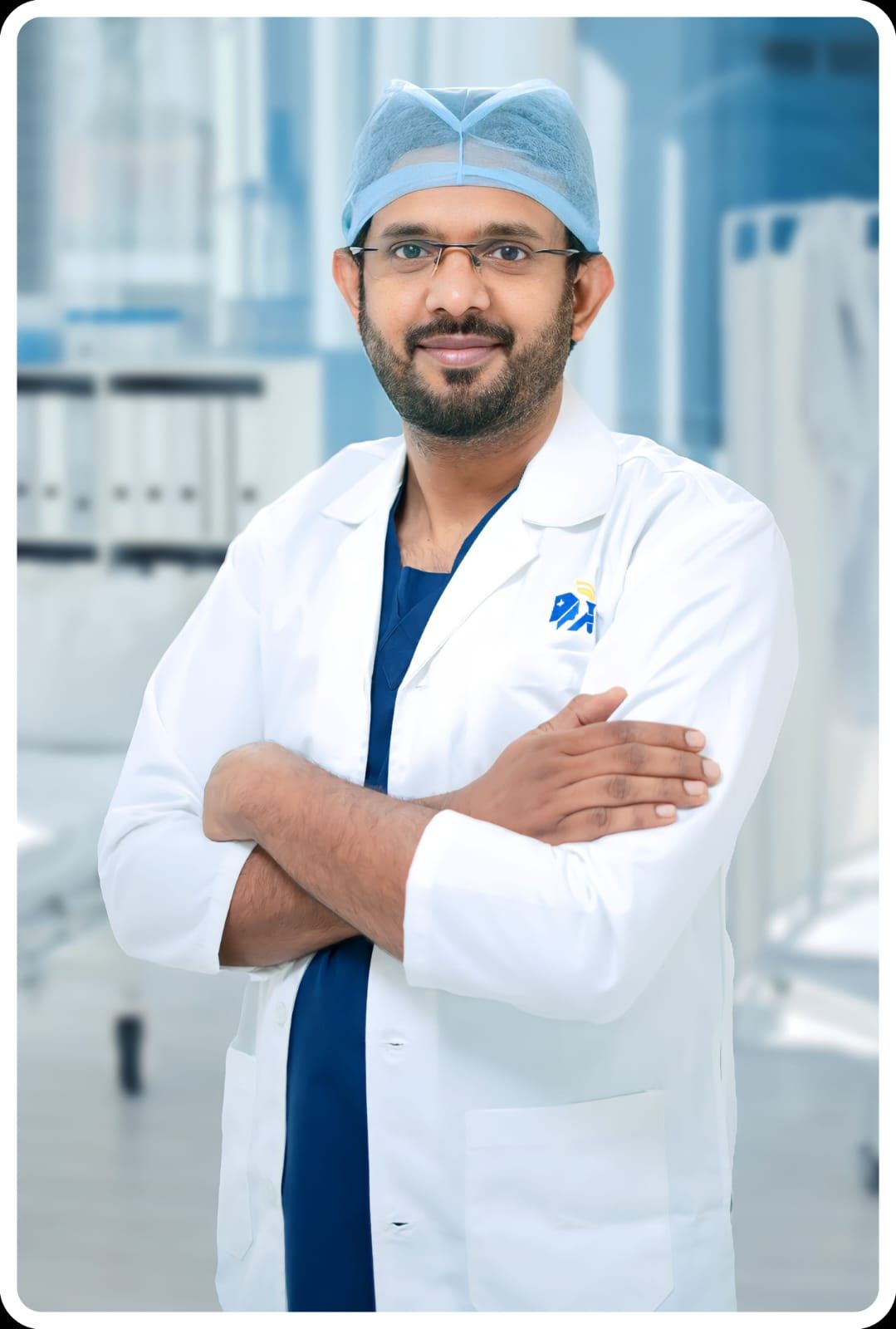Best Vascular Surgeons in bangalore (5 doctors)

Dr Rohit Madhurkar
Interventional Radiologist
11 Years • MBBS, MD (Radio Diagnosis/Radiology), FIR-PDCC, SITAT (S. Korea)
8 KM • Bengaluru
Apollo Hospitals Bannerghatta Road, Bengaluru

Dr Manju Bharath N R
Vascular Surgeon
10 Years • MBBS, MS GENERAL SURGERY, DNB Peripheral Vascular and Endovascular Surgery,
8 KM • Bengaluru
Apollo Hospitals Bannerghatta Road, Bengaluru

Dr Muralikrishna Nekkanti
Vascular Surgeon
8 Years • M.B.B.S, M.S.
4 KM • Bengaluru
Apollo Hospitals Jayanagar, Bengaluru

Dr. Venukumar Kn
Vascular Surgeon
10 Years • MBBS, MS (Gen Surgery), DNB (General Surgery) M.CH (Vascular Surgery) Dr.NB (Vascular Surgery)
8 KM • Bengaluru
Apollo Hospitals Bannerghatta Road, Bengaluru

Dr Venu Kumar K N
Vascular Surgeon
8 Years • MBBS, MS(General Surgery),M ch(Vascular Surgery) DrNB
8 KM • Bengaluru
Apollo Clinic, JP nagar, Bengaluru
Vascular Surgeons in top localities of bangalore
- •Best Vascular Surgeons in Kengeri, Bangalore
- •Best Vascular Surgeons in Sulikere, Bangalore
- •Best Vascular Surgeons in Samethanahalli, Bangalore
- •Best Vascular Surgeons in Kalkunte, Bangalore
- •Best Vascular Surgeons in Naduvathi, Bangalore
- •Best Vascular Surgeons in Singasandra, Bangalore
- •Best Vascular Surgeons in Udaypura, Bangalore
- •Best Vascular Surgeons in Sakalavara, Bangalore
- •Best Vascular Surgeons in Kalkere, Bangalore
- •Best Vascular Surgeons in Hessarghatta, Bangalore
- •Best Vascular Surgeons in Hessarghatta Lake, Bangalore
- •Best Vascular Surgeons in Shivakote, Bangalore
- •Best Vascular Surgeons in Kakolu, Bangalore
- •Best Vascular Surgeons in Byatha, Bangalore
- •Best Vascular Surgeons in Chikkabanavara, Bangalore
- •Best Vascular Surgeons in Silvepura, Bangalore
- •Best Vascular Surgeons in Kodigehalli, Bangalore
- •Best Vascular Surgeons in Huskur, Bangalore
- •Best Vascular Surgeons in Achitnagar, Bangalore
- •Best Vascular Surgeons in Somanhalli, Bangalore
Vascular Surgeons in nearby Cities
Related Treatments in Bangalore
- •Treatment for Angiopathy in Bangalore
- •Treatment for Atrial septal defect in Bangalore
- •Treatment for Cerebral Amyloid Angiopathy in Bangalore
- •Treatment for Acute Diarrhea Treatment in Bangalore
- •Treatment for Aneurysm in Bangalore
- •Treatment for Ankle Pain in Bangalore
- •Treatment for Arrhythmia in Bangalore
- •Treatment for Arteriovenous Fistula in Bangalore
- •Treatment for Arteriovenous Malformation in Bangalore
- •Treatment for Avascular necrosis in Bangalore
- •Treatment for Blocked Blood Vessels in Bangalore
- •Treatment for Blood In Semen in Bangalore
- •Treatment for Broken Teeth in Bangalore
- •Treatment for Cardiac Arrhythmias in Bangalore
- •Treatment for Carotid artery disease in Bangalore
- •Treatment for Carotid Endarterectomy in Bangalore
- •Treatment for Central nervous system vascular malformations in Bangalore
- •Treatment for Cerebrovascular disease in Bangalore
- •Treatment for Decompression Micovascular in Bangalore
- •Treatment for Endometrial Cancer in Bangalore
FAQs
Who is a vascular surgeon?
Vascular surgeons are surgeons who perform surgeries for conditions associated with the vascular system, also known as the circulatory system, made up of vessels that carry lymph and blood from the body. Vascular surgeons perform surgical reconstruction and minimally-invasive catheter procedures.
What do vascular surgeons do?
Vascular surgeons perform surgeries on all parts of the vascular system except for intracranial vasculature and coronaries. They perform both endovascular techniques and open surgeries to treat vascular diseases.
How to consult a vascular surgeon online?
To consult a vascular surgeon online, click on the ‘Online Doctor Consultation’ section on the Apollo 24/7 app or website. Then type ‘Vascular surgery’ in the search bar to find a list of vascular surgeons along with their consultation timings. Choose one that suits your requirements and click on the ‘Consult’ button to book an appointment with a vascular surgeon.
Does a vascular surgeon treat all kinds of vascular system problems?
Yes a vascular surgeon treats all kinds of conditions associated with the vascular system.
When should I consult a vascular surgeon?
You should consult a vascular surgeon if you are diagnosed with vascular disease. Some of the conditions include atherosclerosis, deep vein thrombosis, lymphedema, pulmonary embolism, and varicose veins.
What do we call a vascular surgeon in simple words?
Vascular surgeons are simply specialists who treat diseases associated with veins and arteries.
Can I consult with a vascular surgeon anytime?
Yes, on Apollo 24/7, you can consult a vascular surgeon any time. Our vascular surgeons are available round-the-clock for online consultations. Just pick your preferred slot and book a consultation.
How do I choose the best vascular surgeons in India?
Apollo 24/7 has the best vascular surgeons in India who are available round-the-clock to offer you an online consultation. All our doctors are highly-qualified and experienced to ensure that all your health conditions are taken care of.
Does video consultation available with all vascular surgeons?
Yes, all vascular surgeons on the 24/7 platform offer video call consultations.
What symptoms indicate that I need to see a vascular surgeon?
Disorders of the vascular system are indicated by symptoms such as sores on your legs or feet that won’t heal, weakness or numbness in the leg, erectile dysfunction in men, painful cramping while walking or climbing stairs, and coldness in your legs or feet.
What surgeries do vascular surgeons perform?
Vascular surgeons perform a variety of surgeries to treat conditions of the vascular system. Some of these are vascular bypass grafting, amputation, thrombectomy, angioplasty, atherectomy, vein stripping, and endovenous laser treatment.
What are some of the conditions that vascular surgeons treat?
Some of the conditions that vascular surgeons treat are peripheral artery disease (PAD), varicose veins, atherosclerosis, deep vein thrombosis, pulmonary embolism (blood clots), critical limb-threatening ischemia (CLTI), fibromuscular dysplasia, and portal and renovascular hypertension.